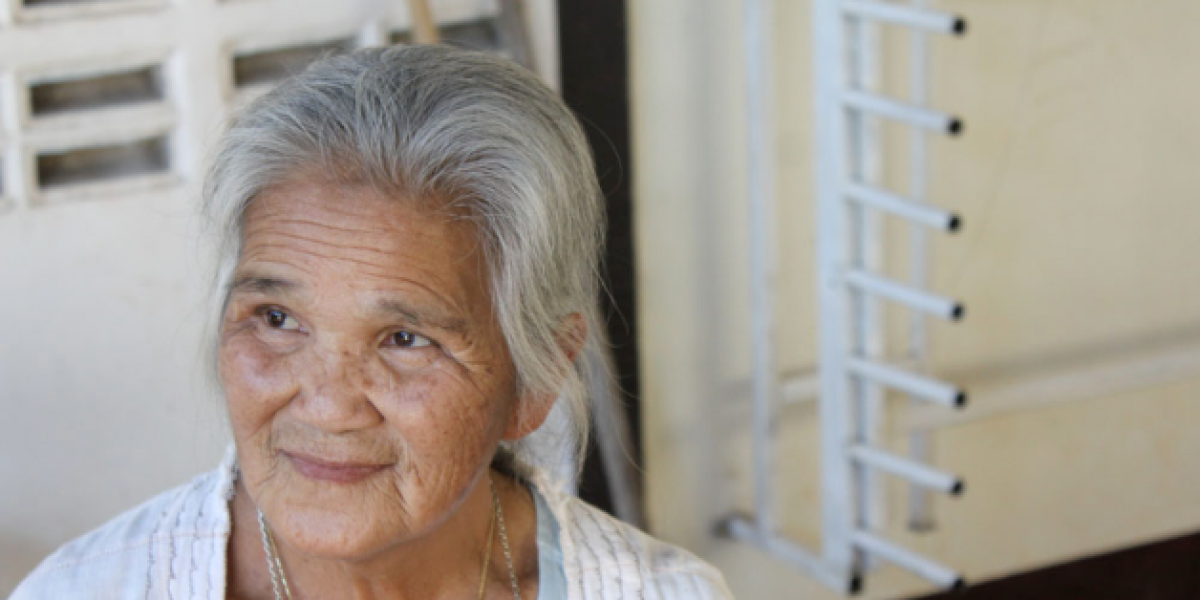Thailand: Mary’s House is home to many
31 January 2011|Molly Mullen, regional assistant communications officer

Wiang Hang, 31 January, 2011 – Mary shuffles slowly through her home. At 75-years old, it takes her longer to get around than it used to. After running her orphanage – modestly named Mary’s House – for 11 years, she admits that she feels her age.
But don’t let her appearance of deep-set wrinkles and her quiet speech fool you. She is still strong. She has to be. Mary has become mother to 20 orphans and has to be strong for them.
“The children become like family. They may have had trouble before they got here, but I train them. There is no trouble here”, she said.
And the fact that there is no trouble at Mary’s house is an accomplishment. A small compound in northern Thailand, near the Burma border, there is trouble all around this safe haven. The community is near a popular drug route where methamphetamine travels from Burma to Chaing Mai and Bangkok. Local youth from Burmese Shan, northern tribes, Thai and Chinese communities are at risk of becoming addicted and involved in the trafficking.
“It is getting worse than it used to be. But not here.”
Mary, who moved from Burma’s Shan state 14 years ago, employs a discipline she learned as an English teacher in a convent: tough love. And it’s this tough love that protects her children from the possibilities of drug trafficking, dropping out of school and sex work.
Her children must wake at 5:30 for English lessons. They must cook and clean. They must attend school and look after one another. After school, they tend the vegetable garden and practice weaving. With this schedule, she, along with her biological son, are able to keep order in a house of 15 teenagers, half boys and half girls.
“There is no secret”: she said smiling. “Everything I do, I do in the open. I am strict. I am up front.”
And her style has proven itself over the years. Sitting in her kitchen, she points to a portrait one of her children painted of her. He is now being educated as a monk. Near the portrait is a photo of another one of her children, standing next to President George W Bush. She now works in politics in the United States.
“I am very proud. Very proud.”
Another five of her children have gone on to be accepted for higher education in Chaing Mai. She is trying to support them financially on her own while they study.
JRS supports Mary’s work by providing seeds for the vegetable garden. The children use them in their meals and can sell what is left over in town.
While she calls her home an orphanage, the title is not exactly accurate. Many of these children have a parent or relatives in the community. But they are vulnerable. Many teenagers leave school to work in the fields or become addicted to drugs. So when they need a safe place to live, she tries to keep her doors open.
But with an ever-increasing drug problem and fewer funds to manage on every year, Mary admits to turning some away last year.
The name Mary’s House is also deceptive. It is more than a house. It is a place to learn weaving, an English school, vegetable garden, and a safe haven.
“I hope I can help some. But I am old enough already. Tired”, she said.
Still, when asked if her youngest child – nine years old – is the last she will care for, she said “I have no idea. I don’t know my future”.

